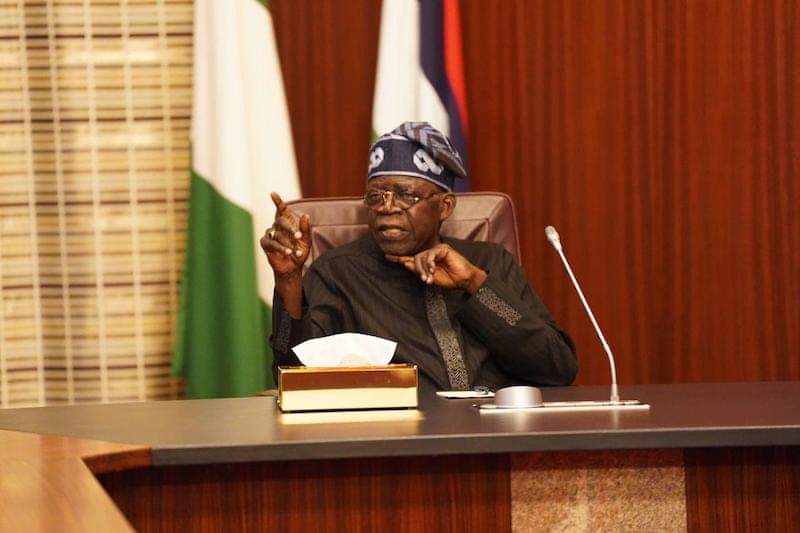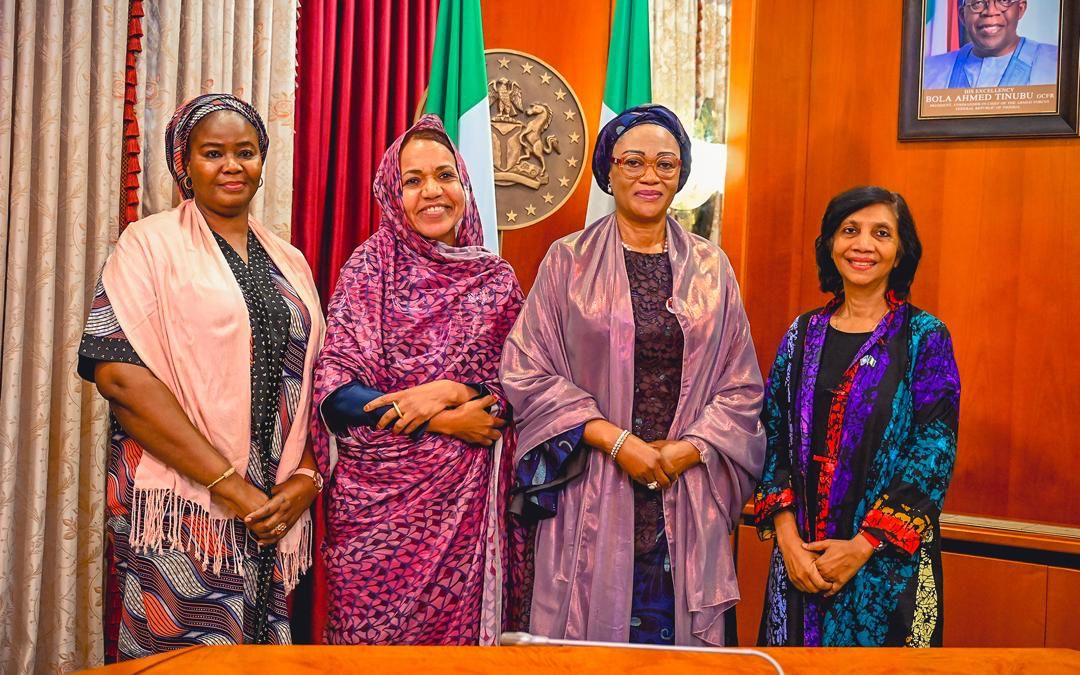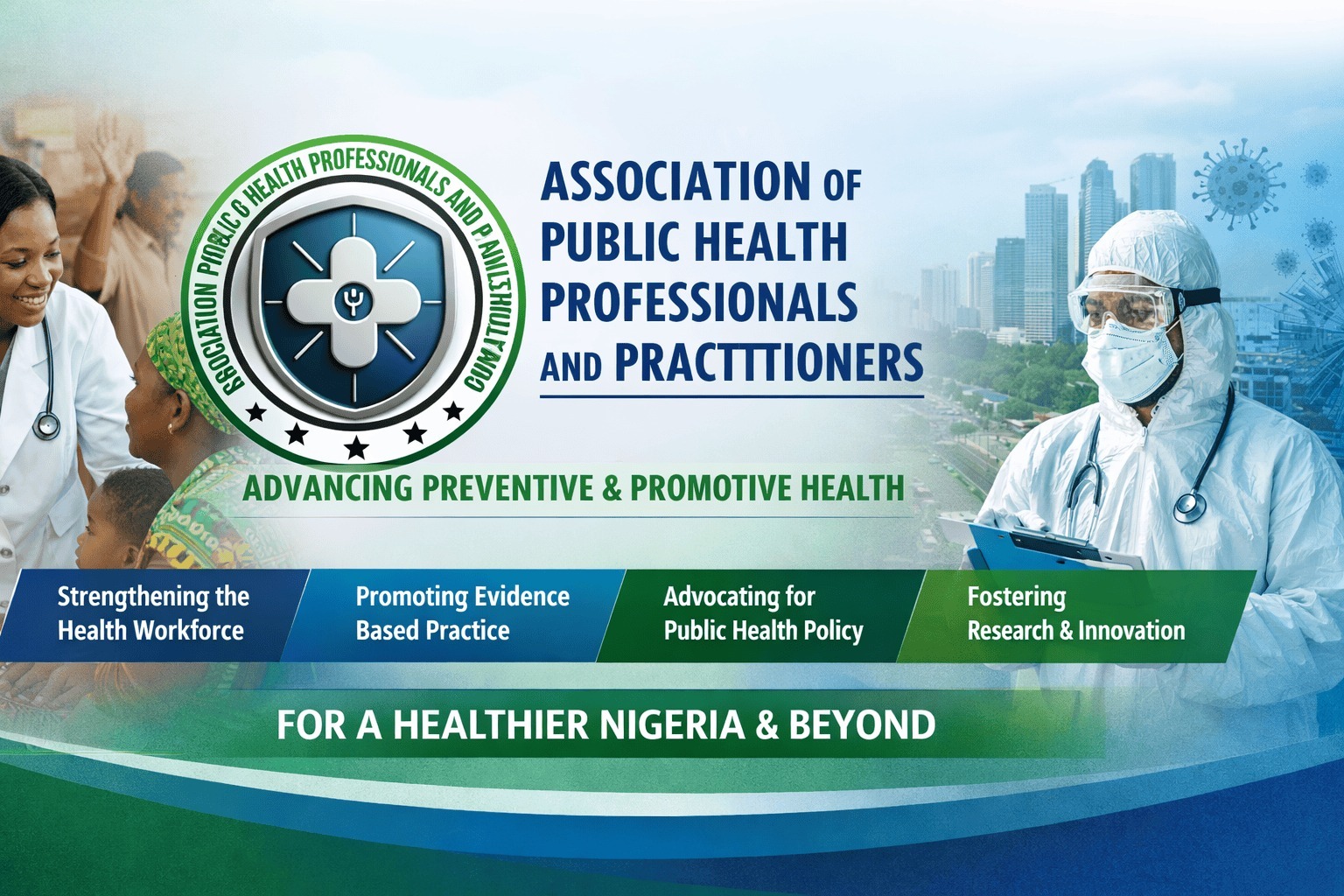President Tinubu’s Health Reforms: The Outcomes
FREDRICK NWABUFO

The health sector is one of the Tinubu administration’s axes of policy dynamos and triumphs. Reforms initiated to upskill manpower, strengthen structural integrity, upgrade infrastructure, provide essential equipment, and ensure efficiency in healthcare delivery are crystallising with evident outcomes. In December 2023, President Bola Tinubu unveiled the Nigeria Health Sector Renewal Investment Initiative (NHSRII) – a programme steered by the Ministry of Health and Social Welfare under the Coordinating Minister of Health and Social Welfare, Dr Muhammad Ali Pate.
The Nigeria Health Sector Renewal Investment Initiative is a strategic blueprint — with a sector-wide tack for improving population health outcomes through the primary healthcare system and enhancing reproductive, maternal, and child health services in the country. Primary healthcare is as fundamental as the under-structure of an edifice in building a resilient and integrated healthcare system; hence, the Tinubu administration’s comprehensive revamp of infrastructure and equipment and re-training of frontline health workers.
Specifically, the administration set out to raise the number of functional Primary Healthcare Centres (PHCs) from 8,809 to over 17,600 by 2027 across the 36 states and the Federal Capital Territory (FCT), train 120,000 frontline health workers over 16 months, increase health personnel enrolment capacity of accredited nursing and midwifery institutions by two-fold to accommodate the demand created by new facilities, and establish a paid volunteer youth force of social accountability officers to monitor the functioning and financial integrity of these primary healthcare centres.
In addition, the administration sought to address the high cost of healthcare and enhance access to healthcare services by redesigning the Basic Health Care Provision Fund (BHCPF). The BHCPF is a foundational element of the sector-wide approach – with pooled and non-pooled financing to advance the primary health system nationwide.
So far, the policy intentions and actions are yielding winsome outcomes.
HUMAN RESOURCE FOR HEALTH – 120,000 health worker training
· A total of 40,240 health workers have been trained so far, of which frontline health workers comprising doctors, nurses, midwives, CHEWs, and JCHEWs providing clinical services in government-owned PHCs are 36,087.
· 24 states plus the FCT have completed Phase 1 training
· Phase 1 training will be completed in the outstanding states in the coming months
· Conversations are ongoing with states to accelerate recruitment of health workers to meet their PHC functionality gaps, starting with accelerated transition of volunteers to full-time salaried employees
· Transitioned volunteers and newly recruited health workers will be trained during Phase 2
· To ensure sustained and continued capacity building, an e-learning programme is being developed to be deployed
COMMUNITY HEALTH PROGRAMME
· NPHCDA, in collaboration with FMOHSW, state governments, and partners, is redesigning a community health programme that will extend essential health services to remote and underserved communities towards improving health outcomes
· The community health programme will create 126,000 jobs for community health workers
· Services to be delivered will include Reproductive, Maternal, Newborn and Child Health and Nutrition, Routine Immunization, Non-Communicable Diseases, HIV, TB, Malaria, Health data collection, Disease surveillance, Risk Communication and Community Engagement and Health insurance.
REPRODUCTIVE, MATERNAL, NEWBORN, AND CHILD HEALTH SERVICE DELIVERY
Under reproductive, maternal, newborn, and child health service delivery, the progressive outcomes are:
· Expanded Midwives Service Scheme (eMSS) redesigned across four major areas: The scheme has expanded and recruited skilled birth attendants, enhancing maternal and child healthcare nationwide
· 730 skilled birth attendants to be deployed to prioritised PHC facilities (in the first six months using the eMSS as an interim solution)
· RMNCH commodities quantification was done for pooled procurement. This will enable the establishment of seed stock of a reliable end-to-end system that guarantees regular availability and visibility of the MNCH commodities in PHC facilities.
· Service delivery models for traditional birth attendant referral and midwifery outreach were developed to generate demand and provide maternal and child health services to hard-to-reach communities
· Conducted service readiness assessment across 1,508 BHCPF health facilities to identify service gaps and define interventions required to ensure all suites of maternal and reproductive health services are provided (family planning, post-delivery and miscarriage care, adolescent sexual and reproductive health, maternal health and gender-based violence services)
· A draft framework for sustainable commodity distribution is being developed
PRIMARY HEALTHCARE REVITALISATION
· 8,421 health facilities assessed in 36+1 states
o Identified 1,786 level 2 functional PHCs. These are PHCs that have everything in place for a pregnant woman to deliver her baby safely 24/7
o Identified 5,447 level 1 functional and 1,189 partially functional PHCs. These facilities lack at least 1 key component to be fully functional but can provide basic PHC services (e.g., ANC, RI, etc)
· Revitalisation efforts have commenced to increase the number of functional health facilities across the country
o 577 primary healthcare centres have been identified across the states for revitalization by the federal government
o 2,737 primary healthcare centres targeted by state governments for revitalization
· Public view dashboard showing the status of facilities and revitalisation being developed
BASIC HEALTH CARE PROVISION FUND 2.0
· A new set of guidelines is currently under review by the Ministerial Oversight Committee
· The BHCPF 2.0 will see that more facilities will receive Direct Facility Funding (DFF), and this DFF will be increased from N300k to N600k-N800k per quarter
· PFMOs will also be engaged to ensure transparency and improve PHC service quality by tracking financial and operational activities to support data-driven decisions
DATA AND DIGITISATION
· The NPHCDA has developed a comprehensive 3-year digitalisation agenda that encompasses facility functionality and readiness, supply chain management, financial management, and the community health information system
· Facility functionality dashboard developed and operated from NPHCDA, currently awaiting the first round of data refresh
· Public platform to provide wide access view of PHC functionality in progress
· Detailing of citizen engagement mechanisms in progress
ROUTINE IMMUNISATION AND POLIO
· 89 wards initiated the Identify Enumerate and Vaccinate (IEV) strategy to improve the quality of polio campaigns and use of data: with expansion plans developed
· Synchronized nOPV2 campaigns scheduled for October 25 and November 22 – with the aim to reach 38 million eligible children in 20 states
· HPV vaccination rolled out nationwide with 12,345,572 girls vaccinated across 36+1 states
HEALTH CAMPAIGN STRENGTHENING
· Launched the diagnostic process to streamline campaigns, enhancing efficiency and inclusivity for diverse audiences
· Nigeria has joined the Collaborative Active Strategy (CAS) as one of two pilot countries, aiming to effectively implement health campaigns and strengthen the nation’s health system. This has resulted in the establishment of a technical working group tasked with tailoring CAS recommendations to align with Nigeria’s priorities and overseeing their implementation
It is in light of the sector-wide health initiative that the World Bank recently approved $1.57 billion to support the health sector in Nigeria. The World Bank financing is from the International Development Association (IDA), which is highly concessional, attracting zero interest, with a 10-year moratorium and 30-year repayment plan.
According to the bank, the funds will be used for strengthening human capital through better health for women, children, and adolescents.
“The World Bank has today approved three operations for a total of $1.57 billion to support the government of Nigeria in strengthening human capital through better health for women, children and adolescents and building resilience to the effects of climate change such as floods and droughts through improving dam safety and irrigation. The new financing includes $500 million for addressing governance issues that constrain the delivery of education and health (HOPE-GOV), $570 million for the Primary Healthcare Provision Strengthening Program (HOPE-PHC) and $500 million for the Sustainable Power and Irrigation for Nigeria Project (SPIN). The HOPE-GOV and HOPE-PHC programs combined will support the government of Nigeria to improve service delivery in the basic education and primary healthcare sectors which are critical towards improving Nigeria’s human capital outcomes,’’ the bank said in a statement.
President Tinubu understands that health is not merely the absence of disease, but the embodiment of physical, mental, and social well-being; hence, his abiding efforts in this sector which has a tremendous impact on the nation’s human capital index.
– Fredrick Nwabufo is Senior Special Assistant to the President on Public Engagement.











